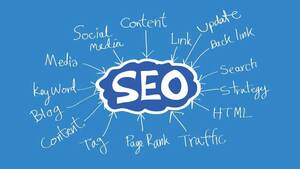SEO vs PPC: Know the Main Differences
الجسم
In the digital marketing landscape, businesses strive to enhance their online visibility and drive traffic to their websites. Two powerful strategies, Search Engine Optimization (SEO) and Pay-Per-Click (PPC), play pivotal roles in achieving these goals. Understanding the main differences between SEO and PPC is crucial for making informed decisions about the most effective approach for your business. Let's delve into the pros and cons of each method step by step.
Nature of Traffic:
SEO:
Pros: Organic traffic generated through SEO is considered more sustainable and long-term. It reflects users actively searching for relevant content or products.
Cons: It takes time for SEO efforts to show results, and achieving a high ranking on search engine results pages (SERPs) can be challenging.
PPC:
Pros: PPC delivers immediate results, placing your ads at the top of search results. It is an effective way to generate quick traffic and conversions.
Cons: The traffic from PPC is paid, and once you stop spending on ads, the traffic flow diminishes.
Cost Factor:
SEO:
Pros: Organic traffic from SEO is essentially free, making it a cost-effective long-term strategy.
Cons: Initial investments in SEO, including content creation and optimization, may take time to yield returns.
PPC:
Pros: PPC allows for precise budget control, and you only pay for actual clicks. It provides a clear understanding of your ROI.
Cons: High competition for keywords can increase the cost per click, making it expensive for certain industries.
Time to Implementation:
SEO:
Pros: Although it takes time to see significant results, the long-term benefits of SEO are worth the investment.
Cons: SEO requires ongoing efforts and continuous adaptation to search engine algorithm changes.
PPC:
Pros: PPC campaigns can be set up quickly, delivering immediate results for time-sensitive promotions or product launches.
Cons: Constant monitoring and optimization are necessary for sustained success, and ad performance may fluctuate.
Credibility and Trust:
SEO:
Pros: High organic rankings contribute to the credibility and trustworthiness of a website. Users often trust organic search results more than paid ads.
Cons: Building trust through SEO takes time and consistent effort.
PPC:
Pros: PPC ads can enhance brand visibility and credibility, especially when targeting specific keywords.
Cons: Some users may be skeptical of paid advertisements and prefer organic results.
Read also: SEO Versus PPC: Understanding The Basics
Targeting and Control:
SEO:
Pros: SEO provides limited control over which specific pages or content appear on SERPs for certain queries.
Cons: External factors, such as changes in search algorithms, can impact rankings.
PPC:
Pros: PPC offers precise targeting options, allowing advertisers to control where and when their ads appear.
Cons: Over-dependence on PPC may lead to missed opportunities for organic growth.
Both SEO and PPC have their distinct advantages and drawbacks. The ideal digital marketing strategy often involves a combination of both, leveraging the strengths of each to achieve comprehensive and sustainable online visibility. Businesses should carefully evaluate their goals, budget, and timeline to determine the most suitable approach for their specific needs.
For further queries or assistance, feel free to contact WS Centre, the Best Website Designing Company In Delhi NCR.








تعليقات